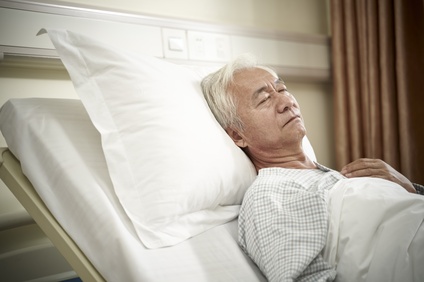Are Bedsores a Sign of Elder Neglect?
Picture this: on a warm summer day, you step outside to enjoy a refreshing peach on your porch. Right as you’re about to bite into it, the phone rings. You take the call and forget all about the peach.
A few days later, you see the peach still sitting there. You pick it up, noticing that the part on which the peach was resting is discolored and broken. The same type of decay can happen to human skin, especially in the elderly who may be left sitting or lying in the same position for long periods of time.
What Are Bedsores?
Bedsores (sometimes spelled bed sores) are skin injuries from prolonged pressure. They can also be referred to as pressure sores, pressure injuries, pressure wounds, pressure ulcers, or decubitus ulcers. If a person develops this condition, it’s very important that the sores are cleaned promptly, consistently, and thoroughly. Most importantly, the person needs to be repositioned regularly for the sore to heal. If an infection occurs, it can invade the bloodstream and cause major health issues.
Common areas for bedsores to appear on the body include:
- Tailbone
- Lower back
- Back of arms and legs (more common from wheelchairs)
- Ankles
- Heels
Why Are the Elderly Most Vulnerable to Bed Sores?
Bedsores are most commonly seen in residents of nursing homes and care facilities. When patients are unable to properly care for themselves, it is the responsibility of the caretaker to assist. Caretakers who fail to care for their patients are neglecting their duties and could face serious consequences if a family member or colleague reports them to the appropriate licensing agency. Patients who are bedridden, wheelchair-bound, or cognitively disabled are most vulnerable to developing these types of sores. Patients like these often do not receive adequate nourishment naturally. Their bodies and skin are both weak, putting them at greater risk for bedsores.
If left untreated, bedsores can become severe. Prolonged exposure to moisture can worsen bedsores. Patients sweating or sitting for too long, and in some unfortunate instances sitting idle in their own feces or urine, can experience infection in their sores. This condition may worsen enough to the point where it can eat through the skin down to muscle and even bone.
How Can Patients Avoid Bedsores?
Patients with bedsores in a California nursing home or care facility could be victims of neglect. The care professionals entrusted with caring for you may not be providing the appropriate level of support. This is illegal, and you should call boutique personal injury law firm Belgum, Fry & Van Allen to help build a case with strong evidential support.
The following list represents the very minimum tasks nursing homes or care facilities should perform to prevent bedsores on patients:
- Reposition elderly patients’ bodies frequently. This will help prevent prolonged pressure to one area of the body.
- Routinely check for soiled clothing or diapers.
- Keep elderly patients hydrated and nourished.
- Keep elderly patients’ skin appropriately dry and inspect it daily.
Belgum, Fry & Van Allen and Bedsore Cases
Belgum, Fry & Van Allen is a boutique personal injury law firm that accepts nursing home abuse cases. If your loved one has bedsores due to potential neglect in their nursing home or care facility, please contact our office to schedule a free evaluation and discuss your legal options. Make an appointment today.




